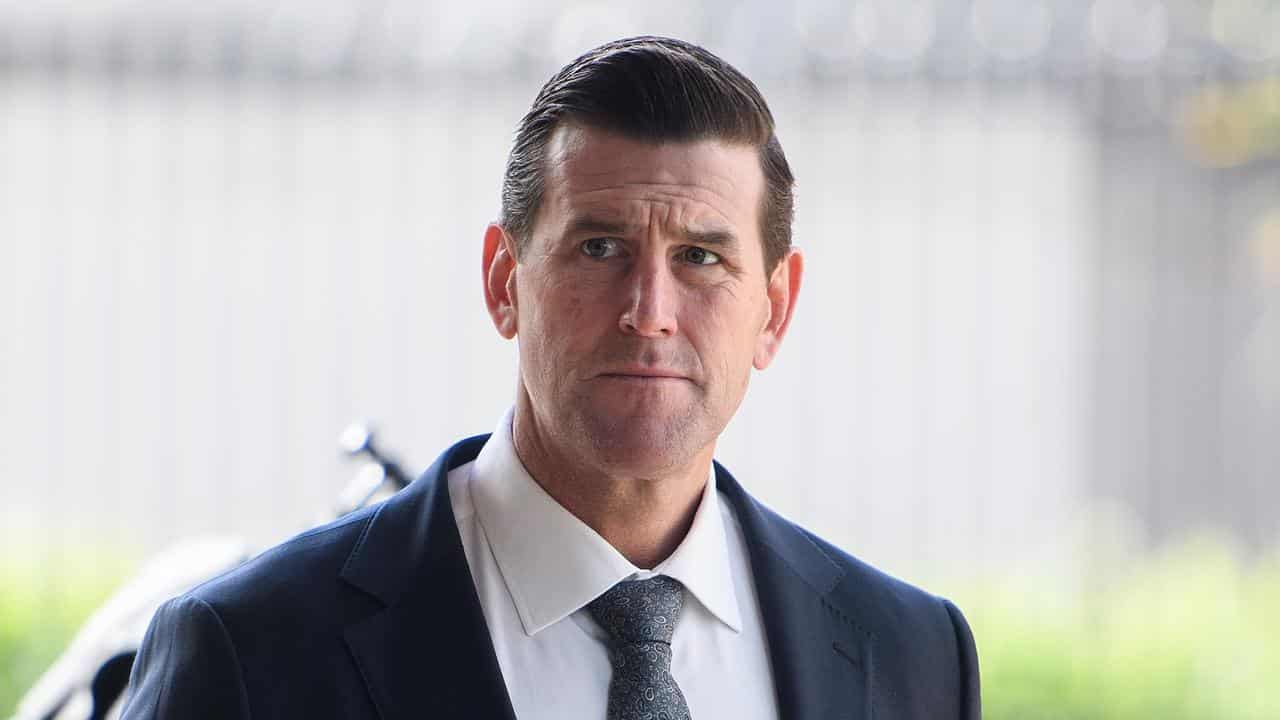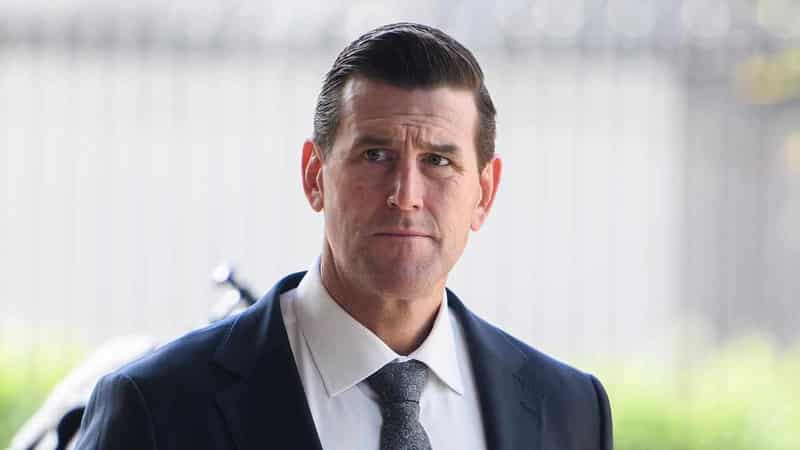
Disgraced ex-SAS soldier Ben Roberts-Smith’s lawyers want to know how war crimes investigators will use sensitive material from his failed defamation case against newspapers that reported his alleged involvement in four murders.
Investigators looking into dozens of possible Afghanistan war crimes under Operation Emerald want access to sensitive documents tendered when Mr Roberts-Smith sued the Sydney Morning Herald, The Age and the Canberra Times.
The Federal Court ruled in June that the newspapers' reports alleging Mr Roberts-Smith’s involvement in four murders while deployed in Afghanistan were substantially true.
He has not been criminally charged and is appealing the judgment of Justice Anthony Besanko.
The Office of the Special Investigator and Australian Federal Police are jointly investigating 33 alleged offences by defence force members in Afghanistan between 2005 and 2016, the court heard on Monday.
The OSI was established after an inquiry by the Inspector-General of the Australian Defence Force into soldiers' conduct in Afghanistan
Some of the material sought by investigators includes partial transcripts from witnesses who were compelled to give potentially self-incriminating evidence at the inspector-general's inquiry and also gave evidence during the defamation case.
“We’re concerned not just about (Mr Roberts-Smith’s) immunities but the immunities that protect any suspect who gave information under compulsion to the (inspector-general's) inquiry,” the ex-soldier's barrister, Luke Livingston SC, told the court.
Mr Livingston also sought to cross-examine OSI investigations director Ross Barnett.
Mr Barnett told the court in affidavits there were procedures in place to properly protect the integrity of investigations and the rights of suspects, but Mr Livingston said that was an unsupported assertion.
“The court will want to be satisfied that the procedures are robust and practically effective and it is that we are seeking to test,” he said.
Lawyers already raised questions about the processes and requested policy documents, but the Commonwealth did not give any "substantive" response, Mr Livingston said.
Commonwealth barrister Jennifer Single SC said it was very unlikely any information not already protected by statutory immunities made its way into the sensitive court file.
There was a risk of human error in redactions to documents on the file but there were filters and safeguards in place, she said.
Despite the safeguards, the practical consequence of any leak would remain the same, Mr Livingston said as he requested more information.
“The answer may be there is no protocol or policy … that itself would be an important fact,” he said.
But Ms Single said providing more detail could pose security issues and the Commonwealth would be entitled to withhold it.
“This is one of those cases where even disclosing whether or not a policy does or does not exist may give way to the public interest immunity,” she said.
Ms Single said it was for the criminal courts to consider whether material had been leaked or improperly handled in the case of a prosecution.
The Commonwealth's requested changes to national security orders made in 2020 and access to the sensitive evidence from Mr Roberts-Smith’s defamation action will return to court on September 27.
Lifeline 13 11 14
Open Arms 1800 011 046









